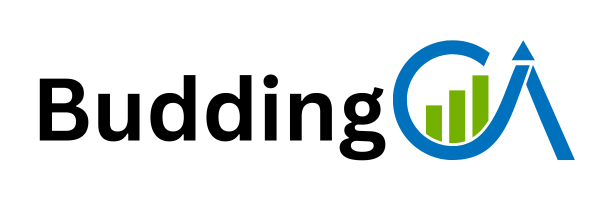When it comes to statutory audit roles, having a resume that stands out is crucial. However, in today’s digital hiring landscape, it’s not just about having the right skills and experience. It’s also about how well you present them—and that often comes down to using the right keywords.
Statutory audit is a highly specialized field, and your resume must reflect not just your qualifications but also your understanding of the core processes and legalities involved. The right keywords ensure that your resume gets noticed by both Applicant Tracking Systems (ATS) and human recruiters.
In this article, we’ll walk you through the most essential keywords for statutory audit roles and how to use them effectively on your resume.
Why Keywords Matter in Statutory Audit Roles
1. ATS Compatibility
Many companies use Applicant Tracking Systems (ATS) to scan resumes before they ever reach the hands of a hiring manager. These systems are designed to scan resumes for specific keywords and phrases, flagging those that match the job description. If your resume doesn’t contain the right terms, it could end up rejected without even being seen by a person.
2. Demonstrating Expertise
Statutory audit is a technical field that requires knowledge of financial statements, regulatory frameworks, and accounting standards. Keywords help you showcase your familiarity with these processes. They also show that you understand the specific requirements of the job and have the expertise necessary to succeed in it.
3. Bridging the Communication Gap
Recruiters often use keywords to quickly assess whether you have the skills required for the role. By using the right terms, you make it easier for them to see that you are a suitable candidate. The use of familiar industry-specific language demonstrates that you are not only capable of doing the job but also that you understand the language of the profession.
How to Effectively Use Keywords in Your Statutory Audit Resume
To make sure your resume gets noticed, here are a few tips for integrating keywords into it effectively:
Be Relevant and Specific
Tailor your resume to each job description. Look for keywords in the job listing and integrate them naturally into your resume. For example, if the job listing mentions “risk management” or “GAAP compliance,” make sure those terms appear on your resume where relevant.
Avoid Keyword Stuffing
While using the right keywords is important, don’t overdo it. Your resume should still read naturally. Keyword stuffing (the excessive use of keywords) can make your resume look forced and may negatively impact your chances.
Focus on Core Skills and Competencies
Focus on the essential skills and competencies that are commonly mentioned in statutory audit job descriptions. These include compliance, internal controls, audit procedures, financial reporting, and so on.
Core Statutory Audit Keywords and Phrases
Here are the most crucial keywords that every statutory audit professional should include in their resume. Organised by category, these keywords cover everything from technical skills to audit procedures and compliance standards.
1. Audit Procedures & Practices
- Statutory Audit: The primary task of an auditor is to perform a statutory audit. This term should be included prominently on your resume if it applies to your experience.
- Audit Engagement: This term refers to the process and engagement of conducting an audit, from the planning phase to the conclusion.
- Audit Sampling: A key auditing technique, it involves selecting a sample from a population of data to make inferences about the larger group.
- Substantive Procedures: These are procedures performed by auditors to detect material misstatements in financial statements. This keyword is important for demonstrating your ability to find inaccuracies.
- Audit Documentation: Proper documentation of audit procedures and findings is essential. This term shows that you understand the importance of thorough record-keeping.
- Audit Strategy: Developing an audit strategy is a vital skill. It shows your ability to plan and manage audit assignments.
2. Compliance and Reporting
- GAAP Compliance (Generally Accepted Accounting Principles): This is a standard accounting framework. Employers in the statutory audit field will look for candidates who are familiar with these principles.
- Regulatory Compliance: Audit professionals must ensure that companies are complying with relevant financial regulations and laws. This term is crucial for your resume.
- Financial Reporting: The ability to prepare, analyse, and review financial statements is critical. This keyword showcases your expertise in managing financial reporting.
- Tax Audit: Tax audits are an important part of the statutory audit process. It’s essential to highlight your experience with tax-related audits if applicable.
- Audit Opinion: The audit opinion is a statement made by auditors about the fairness of a company’s financial statements. This keyword should be included to show your experience in drawing conclusions based on your audits.
3. Risk Management and Control
- Risk Assessment Procedures: Risk assessments are key to identifying areas of concern in a company’s financial practices. This term demonstrates your ability to assess risk.
- Internal Control Frameworks: These frameworks are essential to ensuring the integrity of financial reporting and business processes. Knowing how to evaluate internal controls is an essential skill.
- Control Testing: Control testing helps verify the effectiveness of an organisation’s internal controls. Highlighting this term shows that you have experience testing these mechanisms.
- Compliance Monitoring: Monitoring ongoing compliance with regulations is crucial. This keyword is particularly relevant for roles that require ongoing assessment of financial operations.
4. Technical Skills and Software
- Audit Software: Knowledge of tools like ACL, IDEA, or SAP can be a big asset. If you’re proficient in any of these software tools, make sure to list them.
- Financial Analysis: Performing financial analysis is a core skill for auditors. This keyword should be included to showcase your analytical capabilities.
- Forensic Accounting: If you have experience with forensic accounting, highlighting this skill is essential, especially if the employer is looking for professionals who can uncover fraud.
- IT Auditing: As more companies move their operations online, IT auditing has become increasingly important. If you have experience in this area, don’t forget to mention it.
5. Professional Skills and Qualities
- Professional Judgment: Audit professionals need to apply their judgment to ensure that they are following procedures and identifying any financial irregularities.
- Communication Skills: As an auditor, you need to be able to communicate your findings effectively, whether in written reports or oral presentations.
- Attention to Detail: Auditors must possess a keen eye for detail to spot discrepancies or irregularities in financial records.
- Leadership & Team Collaboration: If you’ve worked in teams or led audit projects, this keyword should be used to highlight your leadership and teamwork skills.
6. Governance and Risk Frameworks
- Governance, Risk, and Compliance (GRC): This term refers to the overall approach to managing governance, risk, and compliance processes within an organisation. It’s crucial for higher-level audit roles.
- Corporate Governance: Strong corporate governance is essential for transparency and ethical business practices. This keyword is particularly important for senior roles in audit.
- Audit Committee: Many companies have an audit committee responsible for overseeing financial reporting and auditing processes. This keyword is relevant if you’ve worked with or managed audit committees.
How to Use These Keywords Effectively
Tailor Your Resume to the Job Description
Read the job description carefully and identify which keywords are most relevant. Use those keywords in your resume where applicable. This helps ensure that your resume passes through the ATS and catches the eye of the recruiter.
Provide Concrete Examples
Whenever possible, give specific examples of how you’ve used these keywords in practice. For instance, instead of just listing “Risk Assessment Procedures,” you could say, “Led risk assessment procedures for a portfolio of clients, identifying potential financial misstatements worth over ₹50 lakhs.”
Focus on Achievements
Don’t just list keywords—highlight your achievements that demonstrate how you’ve successfully applied those keywords. Quantify your results whenever possible.
Conclusion
The right keywords can make a world of difference when applying for statutory audit roles. By carefully selecting and incorporating the most relevant keywords into your resume, you’ll not only increase your chances of passing ATS filters but also show recruiters that you have the skills and knowledge they’re looking for.
Tailor your resume to each job description, use keywords in context, and back them up with concrete achievements. Doing so will give you the best shot at landing your next statutory audit role and advancing in your career.
If you want to stand out in the competitive world of statutory audit, start with a resume that speaks the language of the profession.
Calling all CA dreamers!
🔴 Are you tired of searching for the perfect articelship or job?
Well, fear no more! With 10K+ students and professionals already on board, you don't want to be left behind. Be a part of the biggest community around! Join the most reliable and fastest-growing community out there! ❤️
And guess what? It’s FREE 🤑
✅ Join our WhatsApp Group (Click Here) and Telegram Channel (Click Here) today for instant updates.




